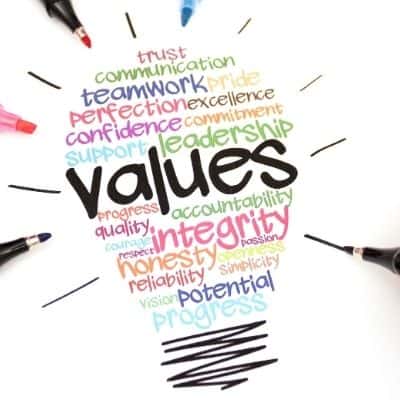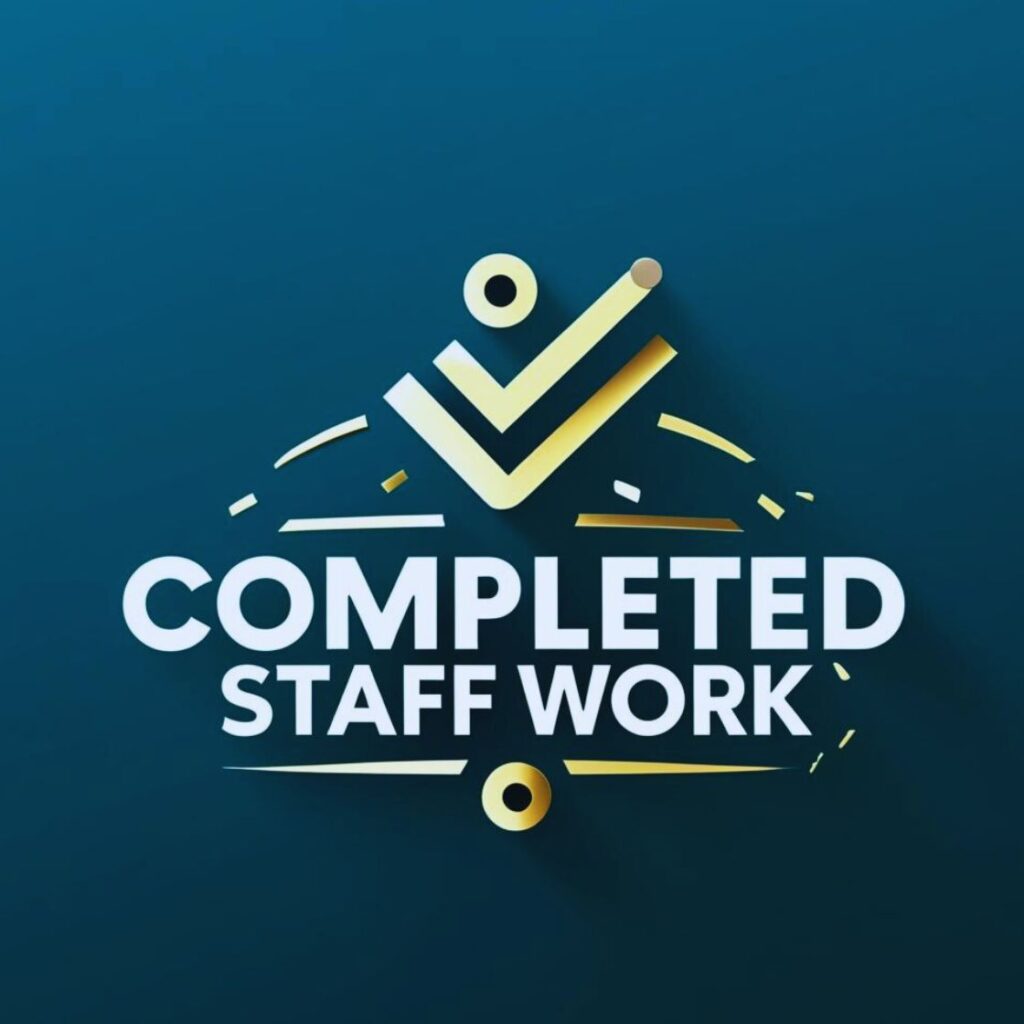Practicing core values at work isn’t just about following rules—it’s about creating a strong, positive culture. When employees live out the company’s values, everyone benefits. The workplace becomes more cohesive, productive, and enjoyable.
Values like integrity, excellence, and teamwork aren’t just ideals. They guide everyday actions and decisions. They help build trust, motivate teams, and drive success.
When employees align their actions with core values, it leads to greater job satisfaction and a stronger connection to the company. This alignment is key to personal growth and organizational success. Let’s explore how we can make this happen.
Values-driven employees.
The goal of every organization is to ensure that each employee embodies the values we deem desirable. These values are not just abstract concepts but are the foundation of a thriving, productive workplace. We aim to cultivate a professional environment where excellence is the standard.
We want employees who consistently show dedication and integrity. This means performing their duties with the highest level of competence and ethics.
We also want our employees to give their best effort in everything they do. This commitment to excellence should be evident in their daily tasks and interactions. It’s about fostering a culture where each individual is motivated to push their boundaries and achieve their full potential.
Ultimately, the goal is to have a workforce that demonstrates the values of the people we want to work with.

Why Values Initiatives Often Fail
We often talk about corporate values. We put them in our corridors, print them on every employee’s ID, and discuss them during onboarding sessions.
Some organizations go further by organizing seminars about these core values. Others hire trainers to conduct Work Attitude and Values Enhancement (WAVE) programs.
While WAVE is a commendable initiative, its primary focus is to convey that there is a specific set of attitudes and values that must be adhered to at work. This approach, however, often misses the mark.
It fails to acknowledge that each employee brings their own set of personal values to the workplace, which might not always align perfectly with the company’s core values.
The disconnect between individual and corporate values is a significant issue. Despite the well-intentioned efforts of WAVE, the reality is that these programs can feel foreign to employees. They sound nice in theory but often fall short in practice.
This dissonance can lead to a lack of genuine commitment to the values being promoted.
Merely talking about values, displaying them on walls, or including them in training sessions doesn’t guarantee that employees will internalize and demonstrate them.
Without a clear, actionable plan to bridge the gap between personal and corporate values, these efforts remain superficial.
In many cases, employees may go through the motions during WAVE sessions without truly integrating these values into their daily behaviors. This is because the sessions often focus more on theoretical ideals rather than practical applications. As a result, the desired transformation in workplace culture doesn’t occur.
The failure to create a values-driven organization stems from the inability to effectively translate these values into daily actions. When there’s a disconnect between what is preached and what is practiced, employees can become disillusioned. They may see the values as mere rhetoric rather than guiding principles.
This situation leads to a fragmented workplace. The inconsistency undermines the integrity of the organizational culture and can affect overall performance and morale.
The problem lies in the execution.
Without a cohesive strategy to align personal and corporate values, attempts to foster a values-driven organization often fall flat. It is crucial to develop a more integrated approach that considers both individual and corporate values to truly embed these principles into the fabric of the organization.
There are better ways to ensure employees embody corporate values, and I am going to share with you two simple methods to achieve this. Having conducted numerous values workshops for various organizations, I assure you that you can successfully implement these strategies too.

Embrace Shared Values
We can’t enhance people’s personal values; we can only encourage them to practice shared values that contribute to the organization’s success.
Studies show that employees are more motivated and engaged when they feel their personal values align with their work environment. According to a study published in the Journal of Business Ethics, when employees’ values match the organization’s values, they are more likely to be satisfied and committed to their jobs.
Align Personal and Corporate Values
It is important to appreciate your people’s values.
Our employees bring with them personal values such as malasakit, integrity, excellence, pakikipagkapwa, and other Filipino values that are highly useful in the workplace. The first step is to find out what these values are. Ask your employees what they really care about, what makes them wake up each morning, and what gets them excited.
Values are clues to people’s motivations. Most leaders search for ways to motivate their teams, but they often fail to ask what already motivates them. Understand these intrinsic motivators so you can align personal and corporate values more effectively.
Core values aren’t carved in stone; they are fluid and dynamic. While there are non-negotiable values that form the foundation of an organization, the collective values of an organization are continuously discovered and deepened as it grows. This organic approach allows for a more authentic alignment between individual and corporate values.
Understanding and appreciating employees’ values isn’t just a one-time exercise. It requires ongoing conversations and genuine interest in their personal motivations and beliefs. This ongoing dialogue helps in creating a workplace where everyone feels valued and understood.
Clarify Aligned and Misaligned Behaviors
It’s also crucial to clarify what behaviors align with corporate values and which ones do not. By making these distinctions clear, employees can better understand how to translate values into actions. This clarity helps in maintaining a consistent and values-driven organizational culture.
You can make this understanding a part of a workshop for everyone. Workshops that explore and align personal and corporate values can be incredibly powerful. They provide a platform for open discussion and help in creating a shared understanding of what the organization stands for.
Traslate Values to Actions
Values must find expression in behaviors. It’s not enough to talk about values; they need to be lived out in everyday actions. This means setting clear expectations for behaviors that embody the core values and recognizing and rewarding those who exemplify them.
By integrating personal and corporate values and making the connection between values and behaviors explicit, you can foster a more cohesive and motivated workforce. This approach not only enhances individual satisfaction but also drives organizational success.

Practice Core Values
The first action is to discover the values of the organization. Start by creating appreciation sessions to understand what matters most to your people. This will help you identify the personal values that employees bring to the workplace. I recommend using Appreciative Inquiry for these sessions, as it focuses on strengths and positive experiences, providing valuable insights into your team’s core values.
Another essential action is to create quick workshops centered around your corporate values. These workshops should involve everyone and provide an opportunity to brainstorm behaviors that align with the organization’s values and those that do not. By engaging employees in this process, you make the values clearer and more relatable to their specific roles and responsibilities.
In one of my clients, we took this further by asking employees to create videos that “sell” the values they want for the organization. This exercise required them to articulate what they love most about their company and how they see its values in action. It was a powerful way to reinforce the values and make them tangible and personal.
Encouraging employees to express what they appreciate about the organization and how they embody its values creates a sense of ownership and commitment. It transforms abstract concepts into real, actionable behaviors everyone can understand and strive to demonstrate.
In addition to workshops and video projects, consider recognizing and rewarding behaviors that align with your corporate values. Public acknowledgment of value-driven actions reinforces their importance and encourages others to follow suit. This creates a positive feedback loop that strengthens the organizational culture.
To ensure these actions have a lasting impact, make them a regular part of your organizational practices. Schedule periodic appreciation sessions and values workshops to keep the conversation ongoing. This continuous engagement helps to keep the values front and center in employees’ minds and actions.
Finally, remember that the goal is to integrate personal and corporate values seamlessly. By understanding what motivates your employees and aligning these motivations with the organization’s core values, you create a more cohesive and motivated workforce. This alignment drives both individual satisfaction and organizational success.



